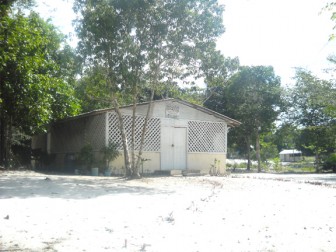Located some 8 miles up the Soesdyke/Linden Highway, the sparsely populated community of Kuru Kuru is struggling as residents plead with the authorities to develop the area.
Kuru Kuru, which was once home to the GDF army base Camp Alpha, thrived as a community in the 1970s and ’90s as it was built on a functioning cooperative society. This body still runs the affairs of the community today, and this includes the issuing of land leases to interested persons who wish to move into the village.
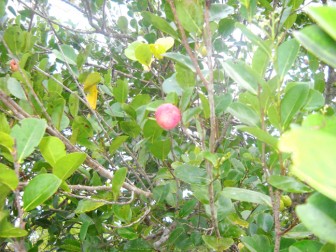
Today, the community, which is home to approximately 500 persons, has seen its population dwindle every year but this notwithstanding, a fewl persons have decided to reverse the trend and make the settlement their home. The residents of Kuru Kuru mainly comprise persons who came to the area from the city, although more recently there has been some migration from parts of the hinterland into the area.
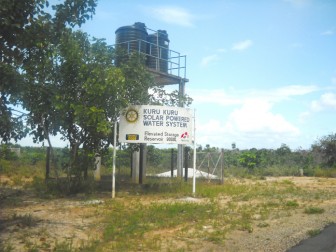
Kuru Kuru got its name from the Kuru Kuru Creek which flows nearby. The settlement is often confused with Kuru Kururu, another village which is located close to the Linden-Soesdyke Highway and the Timehri Public Road junction.
Residents of Kuru Kuru told this newspaper during a recent visit that the lack of potable water as well as electricity are among the major “basic“ problems they face. They noted that most households receive power via small electrical generators while some persons utilize the services of used-12-volt batteries to provide lighting to their homes.
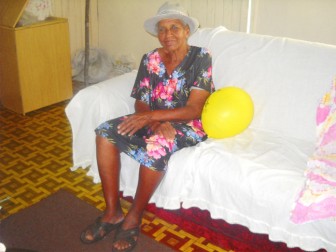
There are power lines which run along the main public road passing near Kuru Kuru, and while residents have been asking the authorities fto provide power for years, they were told that the area needed to be regularised.
The electrical power network was established along a section of the highway some three years ago, a resident noted, and it leads to the village as well as south to the Kuru Kuru Cooperative College, an institution which has produced many professionals in the fields of electricity, mechanics, agriculture and the arts. The college is located more than a mile aback of the community from the busy Linden-Soesdyke Highway. The Dora secondary, primary and nursery schools are housed in the same sprawling compound.
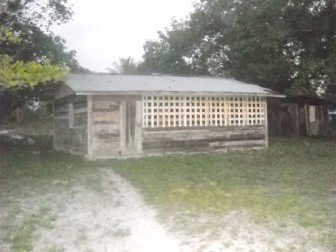
Residents mostly depend on small wells for drinking water and while they do function, they are not reliable and one person pointed out that some people have purchased water tanks. However, this has caused it own problems, since thieves venture into the area and steal the water tanks when the residents are not at home. One section of the community, however, does have access to water provided from a solar powered system funded by the Rotary Club.
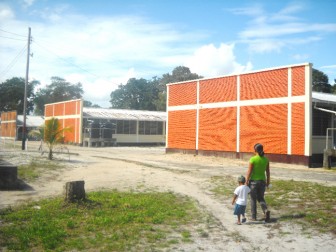
According to Flora Mascull, while life is “difficult“ for her, and the area is “very challenging,” she has lived there most of her life because she finds it quiet and peaceful. Mascull explained that her parents took herself and her siblings to Kuru Kuru when she was 15 years old, and she is now 53.
She too told this newspaper that electricity and water were among the major challenges residents faced.
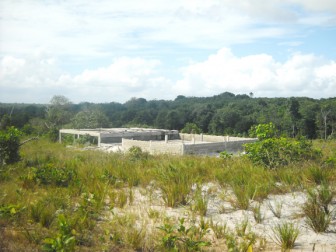
Most residents of the sandy community are engaged in farming, the burning and vending of charcoal as well as logging. She recalled Kuru Kuru being sparsely populated and bushy when she moved there with her parents and siblings decades ago.
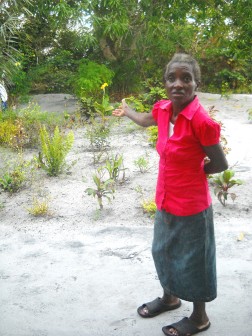
Mascull noted that she and her siblings all received their schooling in the area, adding that education has played a vital role in the lives of her family. Her sister Frances, who is one year her junior, said too that the family has placed emphasis on education and that most of her children have qualified themselves, while the younger ones are working hard to do so. Frances has been a teacher at the Dora Primary School for a number of years and she remarked that the area has produced several “bright minds.“
But there are daily challenges which the students have to face, more especially the lack of recreational facilities and the unreliable transportation services. Mascull said that recently the authorities through assistance from the International Labour Organisation had set up a transportation system to aid students of the Linden-Soesdyke Highway get to and from school.
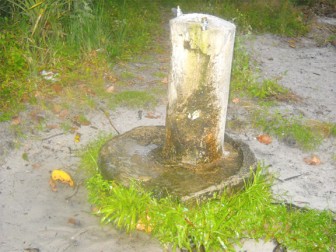
The intervention has proved beneficial to most of them, she said, going on to comment that similar forms of assistance from the government needed to be implemented in the area.
“People come here and after they ain’t able with the life, they would leave and then another family would come in so it hard for some people to deal with,’ Mascull said.
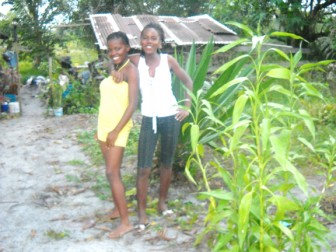
There is also a lack of job opportunities and most school-leavers have to travel outside the area to find work in places like Linden, the city or along the East Bank of Demerara. “Finding jobs here is a difficult thing… you have to leave the area to find a basic job,“ a resident observed recently. “I, like many people in this area would sell coals… we burn and sell it either here along the highway or people from in town would come and buy,” the resident said.
A few shops can be found within the community that provide basic supplies, but on weekends mobile shops, mounted on canter trucks pass through Kuru Kuru, providing much relief to residents as it saves them a bus fare to and from the city.
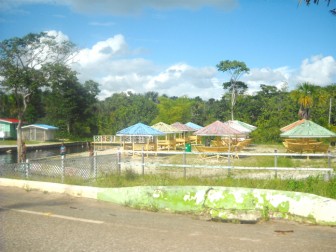
Some three years ago, a city businessman bought and developed the main hang-out spot at the creek which passes near Kuru Kuru, naming it the ‘Umbrella Splash Resort.‘ The venue, which has become more popular since the businessman’s investment, has been providing entertainment to the area that residents have welcomed with open arms, as several popular local and regional artistes have been featured there.
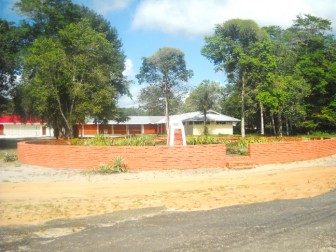
As twilight hovers over the community, several small stereo systems can be heard blaring the current popular hits. According to a resident, “Kuru Kuru is one of the oldest communities along this highway, and depending on if people stay and we get more attention from the government, it will develop.“
